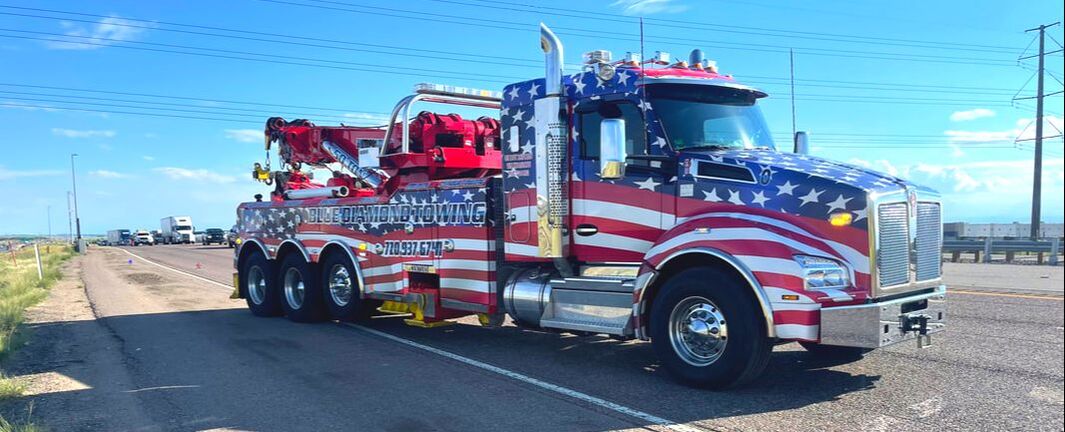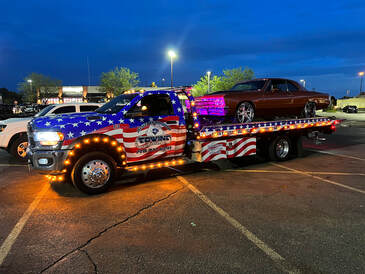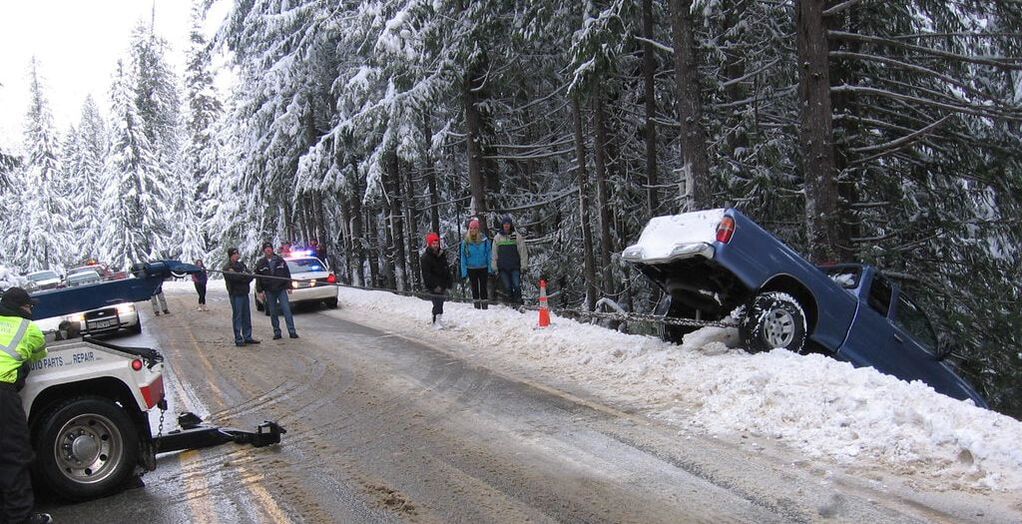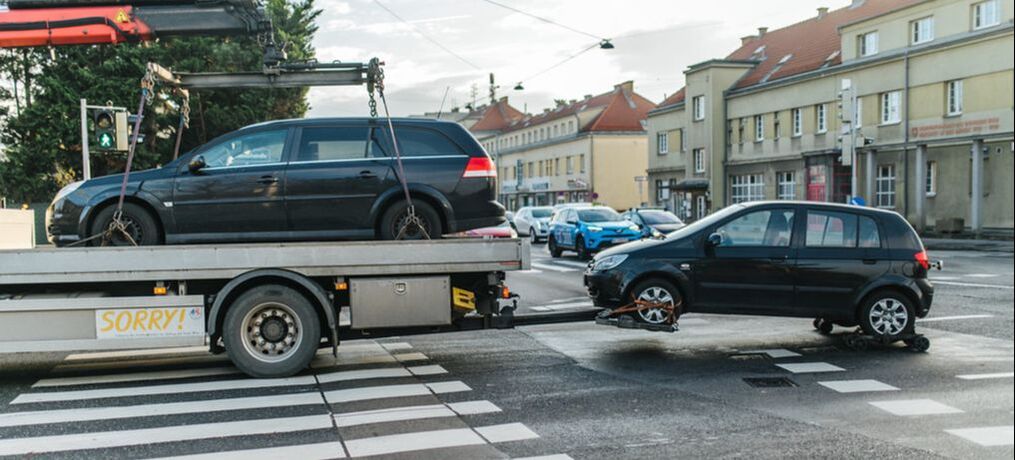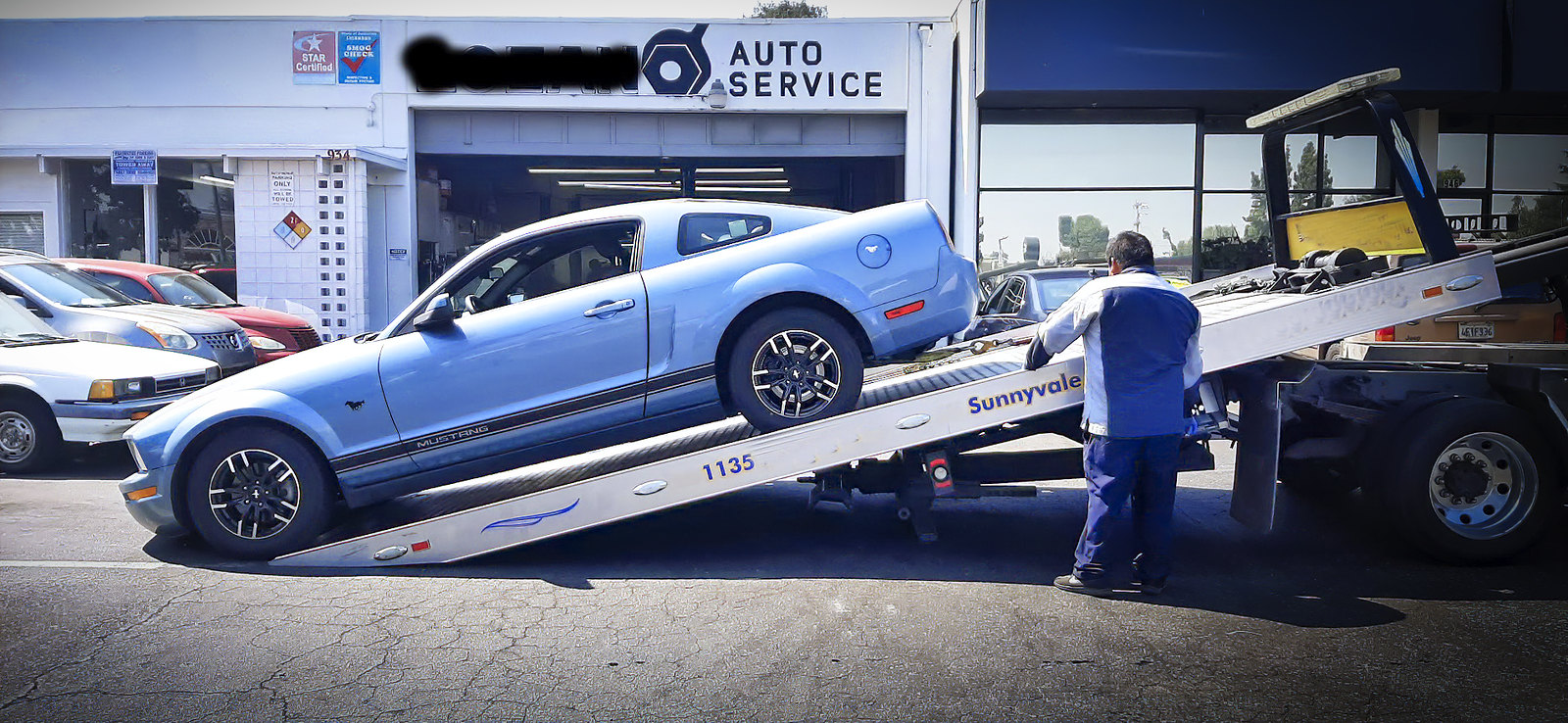We are here for you 24/7
|
Wreck or breakdown? We know the feeling and are here to make things as easy as possible for you. Our top-of-the-line tow trucks and operators can promptly and professionally handle the situation. Call us if you are ever stuck somewhere needing a ride and tow truck! Any time of day or night, we are available to be your best solution.
If you are looking for "towing near me" that you can trust, you've found it. |
Trusted Towing Service |
Emergency Towing |
|
We move high-end cars, rust-buckets, construction equipment, motorbikes, trucks, and most other vehicles for fair, budget-friendly prices. Call us for dependable and affordable towing services when it matters most. It is our business to serve you and your vehicle with excellence. Call us in the heaviest traffic or most rural locations; we can get the job done with efficiency and respect.
High-quality and CheapWe are not out to take advantage of desperate people. Our prices are transparent and budget-friendly. We want to help you out for as low a price as possible. As long as we are covering our costs and paying our professional staff justly, we are all set and ready to serve with excellence.
Winter ExperienceWinter can be very challenging to get around in. Many cars do not have high-quality winter tires, and along with black ice and poor visibility, it is all too easy to slide into another vehicle or off the road. We get it, and we are prepared for winters with the right equipment and fast response team, so you are not stuck in the cold too long. We have towed many cars out of the ditch and are prepared for more severe incidents too.
Heavy Duty TowingWe are one of the only towing fleets in the area that is capable of challenging recovery missions and safely towing over 17,000 pounds. Our service quality, experience, and equipment are unmatched by local competitors.
Find out more about our heavy-duty towing services here. |
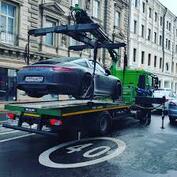
Did your car stop working mid-commute or couldn't start in the morning? Did you get a flat tire or just run out of gas? Maybe you are stuck in the mud or sand. Even if the vehicle is burned up, we are your solution! You can always call for excellent service. We can humbly and confidently ensure you are satisfied with what we do for you. We come to your aid with a resolution, even if it's a jump start for a dead battery. We've got your back.
Stuck on the side of a road hoping a friendly stranger will stop with the right tools and know-how? When you call us, you know we are on our way as soon as possible so you can get on with your life. Wrecker ServiceIf you want a broken/abandoned vehicle towed, we will get it done quickly and professionally. Point A to B nice and easy. If you don't want anything more to do with the vehicle, no worries. Call us when you need a great wrecker service, especially for heavy or badly damaged vehicles in tight spots. We'll see that it gets where it needs to go. You can trust us to handle it right.
|
720 800 6789
WHAT TO DO AFTER A CRASH
John's Story
John fell asleep at the wheel late one night and drifted off the road, hitting a sign and tree over the ditch. John wanted to get home as soon as possible, so he called a friend for a ride and went to sleep, thankfully without severe injuries. Because John left the truck abandoned by the road, he ended up getting fined by the county, which only added to the bills and concerns. If he had called us, we would have been there quickly, towed the car, and ensured he got home safely. All relevant reports would have been filed and the damaged sign called in. If you just experienced or witnessed an accident and don't know what the best next step is, CALL US (after emergency services if required), and we will serve you as best we can with advanced training, experience, and empathy. Our tow trucks are equipped for practically any situation on the road.
WE KNOW THE BEST AUTO REPAIR SHOPS AROUND
Ask us about the best auto shop for you!
Craig's Story
|
Craig had a habit of collecting old vehicles he found for free or at what he thought was super great prices. He figured at least the parts he stripped and tried to sell would make it profitable. After a few years, cars rotting in his yard were becoming an issue, especially with his girlfriend moving in. Craig called us, and thanks to our big rig tow truck, we could safely tow three vehicles at once! This saved Craig so much money removing the junked cars. He is thrilled with the freed-up yard space and is now thinking about getting more great car deals to tinker with. We can even tow his new buys from distant places if they aren't drivable.
|
Thinking about Towing yourself?
What to know before you tow:
The towing capacity of your vehicle is the most crucial factor to look for. Find this in your vehicle manual on paper or online.
Make sure that your towing load limit is under this number. If you neglect this, you are putting your own and other road users' safety on the line. Significant fines apply for overweight loads.
Get as best an estimate for the weight of your tow load as possible. If you are towing a vehicle, you can get a factory weight number by searching something like "Toyota Tacoma 2005 gross weight". If your results have a range, go with the higher number, as this probably includes fluid volume. If the car is loaded with heavy objects like books or scrap metal, account for this too.
Factor in trailer weight too.
With all limits in order, it is highly recommended to do a safety inspection on the towing vehicle, trailer, and fastened vehicle.
***Below is an article on types of trailers if you want more information on the right trailer for your job.
Brakes are the most essential thing to have in good condition. If it has been many months since you have had a brake service done in which the fluid is replaced and pads/shoes/ checked, then we highly recommend you start here.
Ensuring the trailer/towed vehicle has brake and indicator lights working correctly is essential to safe towing around traffic. We all have experienced a few nervous moments or worse due to inappropriate indicator use. With heavy tow loads and low visibility, adequately set up indicator lights are crucial. Letting road users know your intention will make everyone much safer and more comfortable.
Read on for more important safety tips, including tips for steeps, secure fastening, and more.
Safely Slowing Down on Hills
Manual transmissions are better for towing due to their flexibility of them. Engine braking can keep brakes from failing or suffering from heat damage. Towing with an automatic is fine, but remember to let your brakes cool by completely letting off them periodically. If you are on the brakes, even ever so slightly, they only heat up more. This leads to overheating that can boil your brake fluid into compressible gas (making soft brakes), warp rotors, and make for a run-away vehicle.
Securely Fastening Your Load
There are a few good ways to secure loads and many unsafe ways. Take a minute to learn how to fasten loads correctly, and it can save you insurance premiums, costs of damage, and, quite possibly, human lives.
Check out these videos for a detailed look into tie-down tips and techniques.
The towing capacity of your vehicle is the most crucial factor to look for. Find this in your vehicle manual on paper or online.
Make sure that your towing load limit is under this number. If you neglect this, you are putting your own and other road users' safety on the line. Significant fines apply for overweight loads.
Get as best an estimate for the weight of your tow load as possible. If you are towing a vehicle, you can get a factory weight number by searching something like "Toyota Tacoma 2005 gross weight". If your results have a range, go with the higher number, as this probably includes fluid volume. If the car is loaded with heavy objects like books or scrap metal, account for this too.
Factor in trailer weight too.
With all limits in order, it is highly recommended to do a safety inspection on the towing vehicle, trailer, and fastened vehicle.
***Below is an article on types of trailers if you want more information on the right trailer for your job.
Brakes are the most essential thing to have in good condition. If it has been many months since you have had a brake service done in which the fluid is replaced and pads/shoes/ checked, then we highly recommend you start here.
Ensuring the trailer/towed vehicle has brake and indicator lights working correctly is essential to safe towing around traffic. We all have experienced a few nervous moments or worse due to inappropriate indicator use. With heavy tow loads and low visibility, adequately set up indicator lights are crucial. Letting road users know your intention will make everyone much safer and more comfortable.
Read on for more important safety tips, including tips for steeps, secure fastening, and more.
Safely Slowing Down on Hills
Manual transmissions are better for towing due to their flexibility of them. Engine braking can keep brakes from failing or suffering from heat damage. Towing with an automatic is fine, but remember to let your brakes cool by completely letting off them periodically. If you are on the brakes, even ever so slightly, they only heat up more. This leads to overheating that can boil your brake fluid into compressible gas (making soft brakes), warp rotors, and make for a run-away vehicle.
Securely Fastening Your Load
There are a few good ways to secure loads and many unsafe ways. Take a minute to learn how to fasten loads correctly, and it can save you insurance premiums, costs of damage, and, quite possibly, human lives.
Check out these videos for a detailed look into tie-down tips and techniques.
|
|
|
|
The ratchet tensioner should be ditch side (right-hand side of the vehicle). Sometimes adjustments must be made, and it is much safer to do it without traffic whizzing past you as you fix straps on the left side of a car. Keep the simple side left and the tensioners on the right.
Ensure you use a high-quality anchor that won't slip or cut the strap. D-Rings bolted/welded onto the trailer frame are optimal
Ensure you use a high-quality anchor that won't slip or cut the strap. D-Rings bolted/welded onto the trailer frame are optimal
Trailer Talk
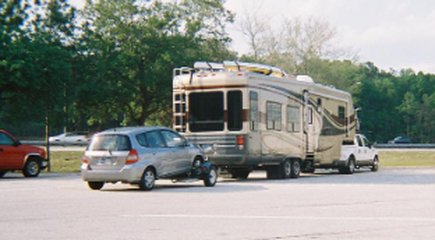
Basic options for towing other vehicles
Not sure if you want to tow with a flatbed trailer or a dolly?
Learn about the pros and cons of both here.
Double towing, like the picture here, is only legal in some states. Colorado is one of them. The total length must not exceed 70ft. That 70ft includes the hitch. It is also imperative that your vehicle has a capable towing capacity and that everything is working correctly.
Negligent driving cases are most commonly associated with towing. Tow responsibly. They were towing safely and knowing the limits and laws.
Not sure if you want to tow with a flatbed trailer or a dolly?
Learn about the pros and cons of both here.
Double towing, like the picture here, is only legal in some states. Colorado is one of them. The total length must not exceed 70ft. That 70ft includes the hitch. It is also imperative that your vehicle has a capable towing capacity and that everything is working correctly.
Negligent driving cases are most commonly associated with towing. Tow responsibly. They were towing safely and knowing the limits and laws.
Learn all about hitches here and in the article below.
There are different tow hitches for other jobs.
There are five classes of tow hitches, each with a maximum tongue weight and maximum gross trailer weight.
What is Tongue Weight? How do I know how heavy it is with my trailer load?
Tongue weight refers to the extra weight applied to the trailer gooseneck/tongue towing vehicle. If you have ever seen a vehicle with a sagging rear axle while towing a seemingly oversized trailer, it probably had a heavy tongue weight. Exceeding tongue weight limits can wreck the towing vehicle's rear axle and suspension. If lots of weight is positioned between the towing vehicle's rear axle and the wheels of the trailer, this results in applying more weight to the tongue and hitch. It is good practice to position the majority of the load weight above the trailer wheels as much as possible. This prevents excessive tongue weight as well as negative tongue weight.
Negative tongue weight is when a trailer is weighted to the rear of the wheels (which acts as a fulcrum), and the trailer chassis becomes a lever raising at the hitch. This would lift the towing vehicle's rear axle and is a very unsafe way to tow. Hitches are not designed for negative tongue weight and will make the towing vehicle handle inappropriately on the road. In extreme cases, the whole rear of the car will lift off the road and get stuck in the air as the front bumper eats the road.
How do I find out my tongue weight?
The first check is to see if your vehicle looks like it is sagging heavily or raising up in the air as you attach the trailer. If it looks reasonable, you can proceed to road-scale testing.
Know your gross vehicle weight (preferably as is without the trailer hook-up). Then, with your trailer hitched on, drive onto the scale, so only the towing vehicle is on the weight scale. Calculate the weight difference by subtracting gross vehicle weight/pre-trailer hook-up weight from your hitched weight.
How do I find out my gross trailer weight?
Drive over the scales so that only the trailer wheels are pressuring the scale. Observe and ensure the weight is below your trailer and towing vehicle capacity limit.
There are different tow hitches for other jobs.
There are five classes of tow hitches, each with a maximum tongue weight and maximum gross trailer weight.
What is Tongue Weight? How do I know how heavy it is with my trailer load?
Tongue weight refers to the extra weight applied to the trailer gooseneck/tongue towing vehicle. If you have ever seen a vehicle with a sagging rear axle while towing a seemingly oversized trailer, it probably had a heavy tongue weight. Exceeding tongue weight limits can wreck the towing vehicle's rear axle and suspension. If lots of weight is positioned between the towing vehicle's rear axle and the wheels of the trailer, this results in applying more weight to the tongue and hitch. It is good practice to position the majority of the load weight above the trailer wheels as much as possible. This prevents excessive tongue weight as well as negative tongue weight.
Negative tongue weight is when a trailer is weighted to the rear of the wheels (which acts as a fulcrum), and the trailer chassis becomes a lever raising at the hitch. This would lift the towing vehicle's rear axle and is a very unsafe way to tow. Hitches are not designed for negative tongue weight and will make the towing vehicle handle inappropriately on the road. In extreme cases, the whole rear of the car will lift off the road and get stuck in the air as the front bumper eats the road.
How do I find out my tongue weight?
The first check is to see if your vehicle looks like it is sagging heavily or raising up in the air as you attach the trailer. If it looks reasonable, you can proceed to road-scale testing.
Know your gross vehicle weight (preferably as is without the trailer hook-up). Then, with your trailer hitched on, drive onto the scale, so only the towing vehicle is on the weight scale. Calculate the weight difference by subtracting gross vehicle weight/pre-trailer hook-up weight from your hitched weight.
How do I find out my gross trailer weight?
Drive over the scales so that only the trailer wheels are pressuring the scale. Observe and ensure the weight is below your trailer and towing vehicle capacity limit.
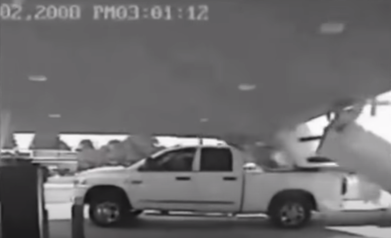
Know the height of your load before you go, and watch out on the road!
The driver in this picture did not. Driving into a covered area quickly with a large camper trailer went disastrously as the trailer, and its momentum, collided with the roof. The whole roof came tumbling down onto the truck. Injuries are very real, and massive destruction of property meant a lot to clean up, legally, with insurance, physically and psychologically.
Do not do this. Many of the most devastating road incidents are from tall vehicle/vehicle loads hitting something overhead.
The driver in this picture did not. Driving into a covered area quickly with a large camper trailer went disastrously as the trailer, and its momentum, collided with the roof. The whole roof came tumbling down onto the truck. Injuries are very real, and massive destruction of property meant a lot to clean up, legally, with insurance, physically and psychologically.
Do not do this. Many of the most devastating road incidents are from tall vehicle/vehicle loads hitting something overhead.
Looking for Towing in Other States?
Our Arizona partners have covered you with great towing service near Prescott.
In Illinois, we love the quality of Oak Park Towing Service
For Florida, we recommend this Towing Company near Eustis.
In Kentucky, Fort Thomas Towing is the best we know of.
In Illinois, we love the quality of Oak Park Towing Service
For Florida, we recommend this Towing Company near Eustis.
In Kentucky, Fort Thomas Towing is the best we know of.
